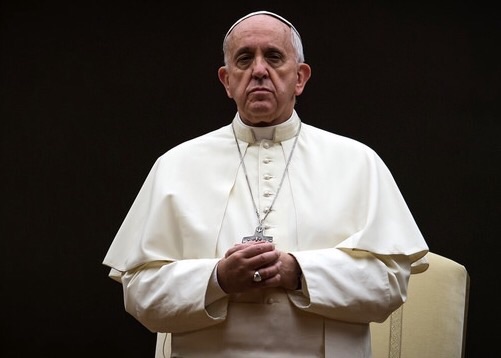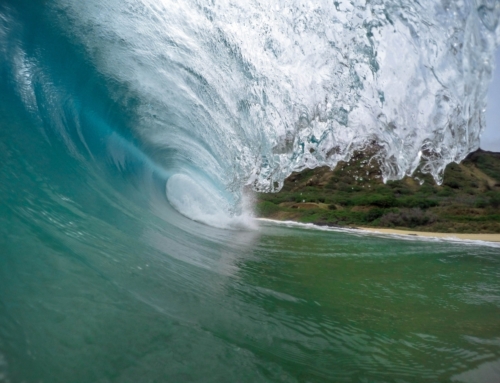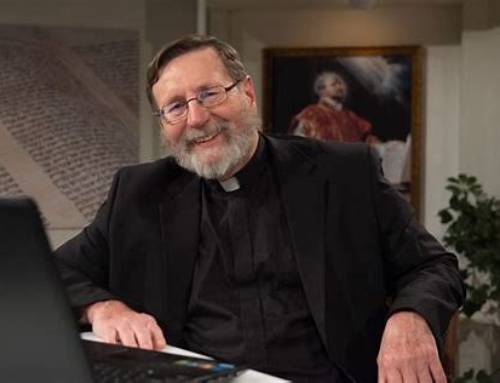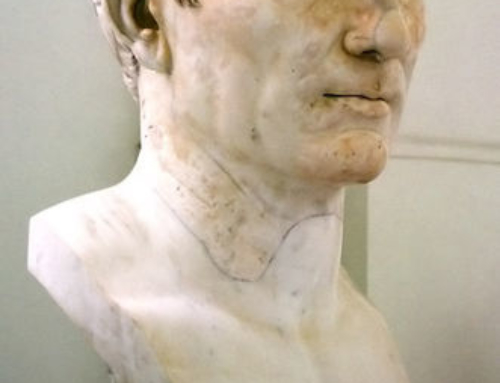Sorry to have been away from the blog for a time, but I have been on retreat with the Norbertine Canonesses in California. It was my annual retreat, but I was also giving a series of conferences for the sisters. They are fans of my book Immortal Combat so I led a Deep Dive into the book for them and, because they asked for more…(I guess that was part of their asceticism…) I also did evening sessions with them, reading chapters of my new book The Way of the Wilderness Warrior as I wrote them day by day.
That was wonderful, and it was a blessing not to have WiFi in the priest’s cabin up in the mountains. The temptation to waste time on Twitter and Facebook was removed from me and I vowed, upon return to the daily grind, to pull back from social media somewhat. Was joining MeWe and Parler a pull back? I’m not sure. Perhaps a focus is a better term. Social media is a great way for me to reach out and spread the news of my blog and writings and share the faith in the new media so I don’t want to pull out completely. On the other hand, they can be terrible time wasters.
For some days before going on retreat I was meaning to write about Pope Francis’ approach, and why so many conservative Catholics are so worried by him. It’s a complicated subject, but Rusty Reno’s book The Return of the Strong Gods helped me make sense of things a bit. In the first part of Reno’s book he explains how, after the Second World War European and American thinkers coalesced around the idea that dogma was a bad thing. Looking back at 500 years of revolution, bloodshed and bitterness culminating in two devastating world wars, they concluded that the problem was dogma. If people weren’t so obsessed about being right they wouldn’t blame the other guy for being wrong and try to kill him. They identified religious dogma as the problem, but within the wars of religion, the religious dogmas were linked with the rise of nationalism. To be German was to be Lutheran. To be English was to be Anglican. To be French was to be Catholic.
So the theory goes, “If we get rid of dogma we get rid of war and killing. Easy!” So “Down with Dogma!” Send dogma to the doghouse.
This fit pretty neatly with the philosophical trends that had been going on since the enlightenment. As rationalism grew and the Church became the enemy, dogma was the point of disagreement. Then as Deism and atheism grew stronger dogma was not only a point of disagreement, the whole idea of revealed truth became nonsense.
During the post-war period ecumenism was also moving forward in leaps and bounds. Dogma was the stumbling block there too. It was all those sticky dogmas that were keeping good Catholics and Protestants apart. If only they could be re-interpreted we could new formulations with which both Protestants and Catholics could agree. This prepares the way for the second Vatican Council where Protestants were welcomed as observers and consultants.
Vatican II establishes a new perspective on the Catholic faith. Now, instead of the rigid doctrinal and moral precepts of neo-Scholasticism there was to be a “pastoral approach”. Instead of the repression of modernism there was to be an opening of windows to the modern world. Instead of dogma there would be an increased understanding of the situations of real people in the real world. The dogmas would not be denied, they would be re-interpreted for modern man. Eventually they would not even be re-interpreted. They would simply, quietly be ignored–put on the shelf–consigned to grandma’s ecclesiastical attic. Under the new view, the old dogmas were quaint museum pieces.
Take for example, the doctrine of transubstantiation: advocates of the new perspective would explain, “This was a philosophical formulation devised in the Middle Ages to answer theological and liturgical controversies at that time period. It was fine then, but this is now. Modern people don’t understand the intricacies of Aristotelian philosophy and Thomistic distinctions. Transubstantiation? We don’t deny it. We just consider it to be rather antique.
I’ve said all that to say this: When you look at the papacy of Pope Francis from this perspective suddenly you will understand. He’s a man of that time period. Dogma is not important to him. To parrot a popular phrase right now, “The dogma doesn’t live loudly within him.” His approach is pastoral, focussed on people and present day situations. That’s why he’s flexible on marriage discipline, open hearted to homosexual people, concerned for the homeless, the refugees, the environment etc. These are the things he believes are important. Dogma? Not so much. That’s why he’s happy to invite a Lutheran woman to come to communion without coming into full communion. That’s why he downplays evangelization. That’s why his encyclicals have very little doctrine or even sacred Scripture.
Please do not mistake my attempt here at explanation as approval. Obviously we need both the pastoral approach and the dogmatic approach, and the two are interdependent. If the tendency now is to overly emphasize the pastoral, it is perhaps a counter balance to previous periods when the church was overly dogmatic.
Christianity must be dogmatic if it is to be real. Because of the specificity of the incarnation, the rest of the Christian faith is specific and particular. We do particular things and believe particular things. A sacrament is valid or it is not. A person believes the faith or they are a heretic Because of the particularity of the incarnation (the second person of the Holy and Undivided Trinity took human flesh of his blessed Mother at a particular time and place in history) Catholicism is particular, and this demands dogma.
Sorry about that!
What disappoints me about Pope Francis is not that he is pastorally minded, but that he seems to be only pastorally minded. I am only a convert and a parish priest, but it seems to me that where the faith most effectively becomes pastoral is at the lowest, local level possible. We parish priests are the ones who have to wrestle with the pastoral problems and apply the moral teachings and teach the dogmas of the faith at street level. The parish is where the dogma meets the road.
Since that is the case, it seems to me that the more universal a position one has in the church, the more that man’s ministry should broaden out to the universals. As a parish priest I deal every day with the pastoral application and teaching of the faith to ordinary people. I’m not a theologian or bishop. Therefore it is not my primary role to defend and define the dogmas and the universal moral precepts of the church. However, the more universal a man’s ministry, the more he should focus on the universals. The pope–being the universal pastor–should therefore pick up the responsibility of defining and defending and proclaiming in universal terms the Catholic faith to the whole world.
This, it seems to me, is the main failure of this papacy. In focussing on pastoral concerns alone we miss the core gospel–which is a universal message. The pope’s role, therefore is one of worldwide proclamation of the simple gospel of Jesus Christ and a strong definition and defense of Catholic dogma. Strengthening this framework will then help all of us to put it into practice in a pastoral way. Furthermore, a strong, uncompromising dogmatic proclamation of the faith will actually strengthen the pope’s (obviously heartfelt) pastoral message.
The world is in desperate need of a strong, joyful, intelligent and compassionate proclamation of the Christian gospel. Living it out with kindness is vital, but to stand St Francis’ dictum on its head….
…preach the gospel at all times–use good works if you need to.
I’ve got another live, real time course starting up next week. On Tuesday, November 24 I’ll be teaching Characters of Christmas. Not only will this be a deep dive into my book The Mystery of the Magi, but I will also be teaching about the historical background of the Bethlehem shepherds, Mary and Joseph and dealing with the theological themes of Advent and Christmas. This six week course is available to Donor Subscribers at the Promotion Level and above. If you wish you can sign up, participate in the course and then unsubscribe is all you want is that course. Why not join us? Go here for more information.







Leave A Comment
You must be logged in to post a comment.